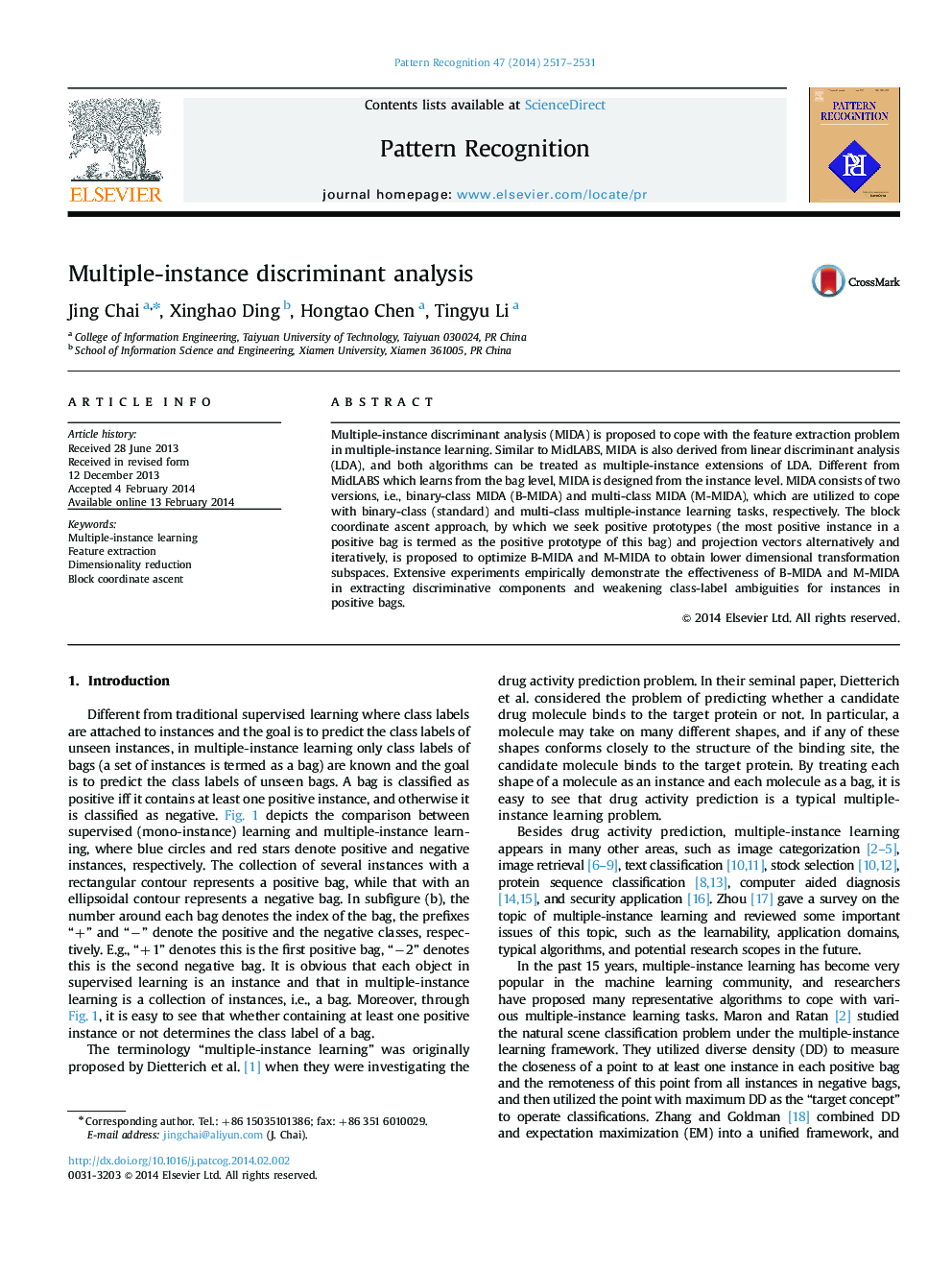| کد مقاله | کد نشریه | سال انتشار | مقاله انگلیسی | نسخه تمام متن |
|---|---|---|---|---|
| 530780 | 869787 | 2014 | 15 صفحه PDF | دانلود رایگان |
• We propose the MIDA algorithm for multiple-instance feature extraction.
• The MIDA algorithm can be treated as multiple-instance extension of LDA.
• MIDA can be utilized for both binary-class and multi-class learning tasks.
• MIDA can find positive prototypes and eliminate the class-label ambiguities.
• We adopt synthetic and real-world datasets to operate evaluations on MIDA.
Multiple-instance discriminant analysis (MIDA) is proposed to cope with the feature extraction problem in multiple-instance learning. Similar to MidLABS, MIDA is also derived from linear discriminant analysis (LDA), and both algorithms can be treated as multiple-instance extensions of LDA. Different from MidLABS which learns from the bag level, MIDA is designed from the instance level. MIDA consists of two versions, i.e., binary-class MIDA (B-MIDA) and multi-class MIDA (M-MIDA), which are utilized to cope with binary-class (standard) and multi-class multiple-instance learning tasks, respectively. The block coordinate ascent approach, by which we seek positive prototypes (the most positive instance in a positive bag is termed as the positive prototype of this bag) and projection vectors alternatively and iteratively, is proposed to optimize B-MIDA and M-MIDA to obtain lower dimensional transformation subspaces. Extensive experiments empirically demonstrate the effectiveness of B-MIDA and M-MIDA in extracting discriminative components and weakening class-label ambiguities for instances in positive bags.
Journal: Pattern Recognition - Volume 47, Issue 7, July 2014, Pages 2517–2531
